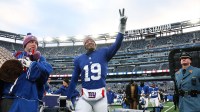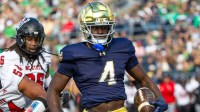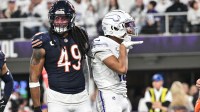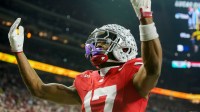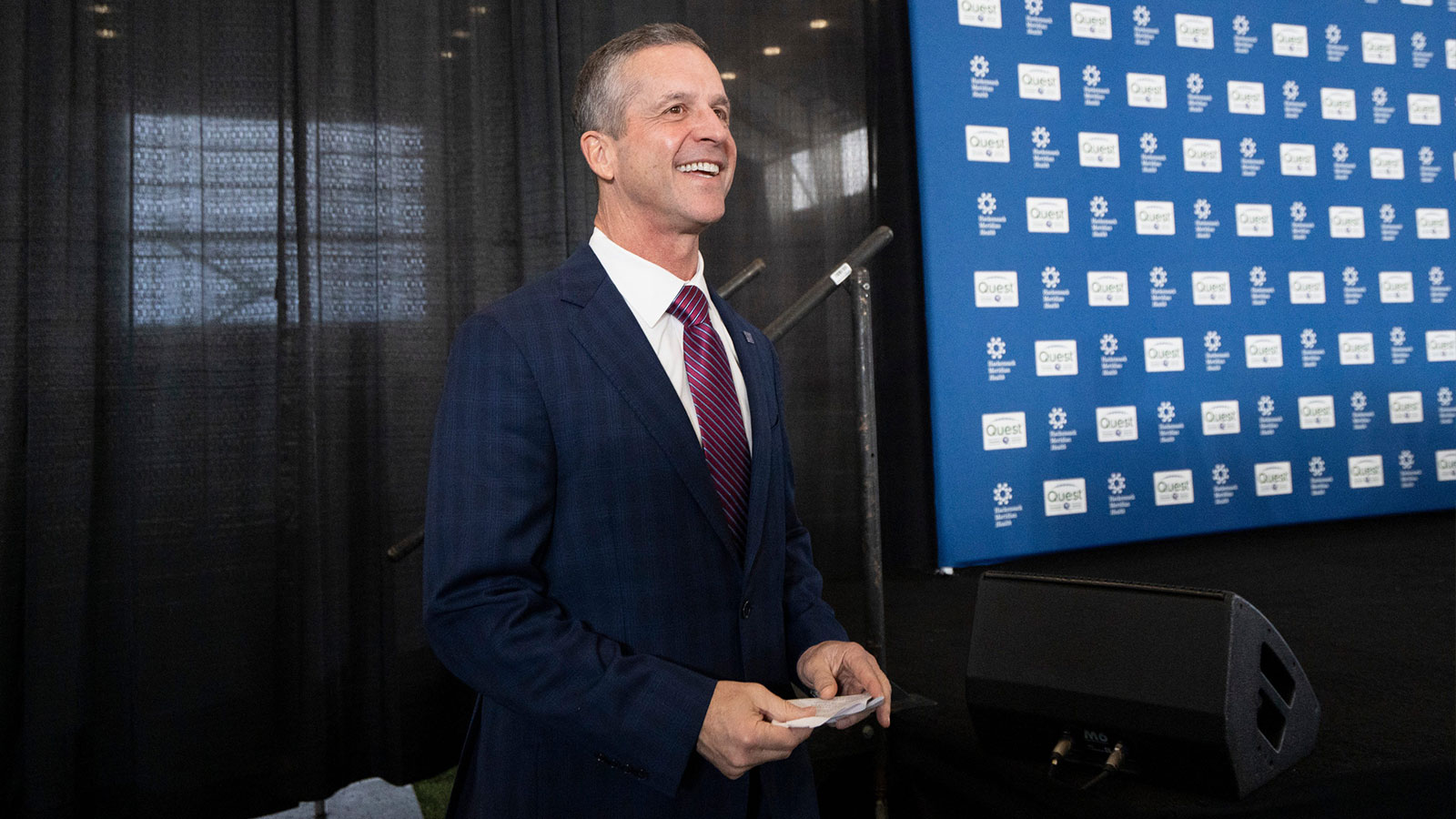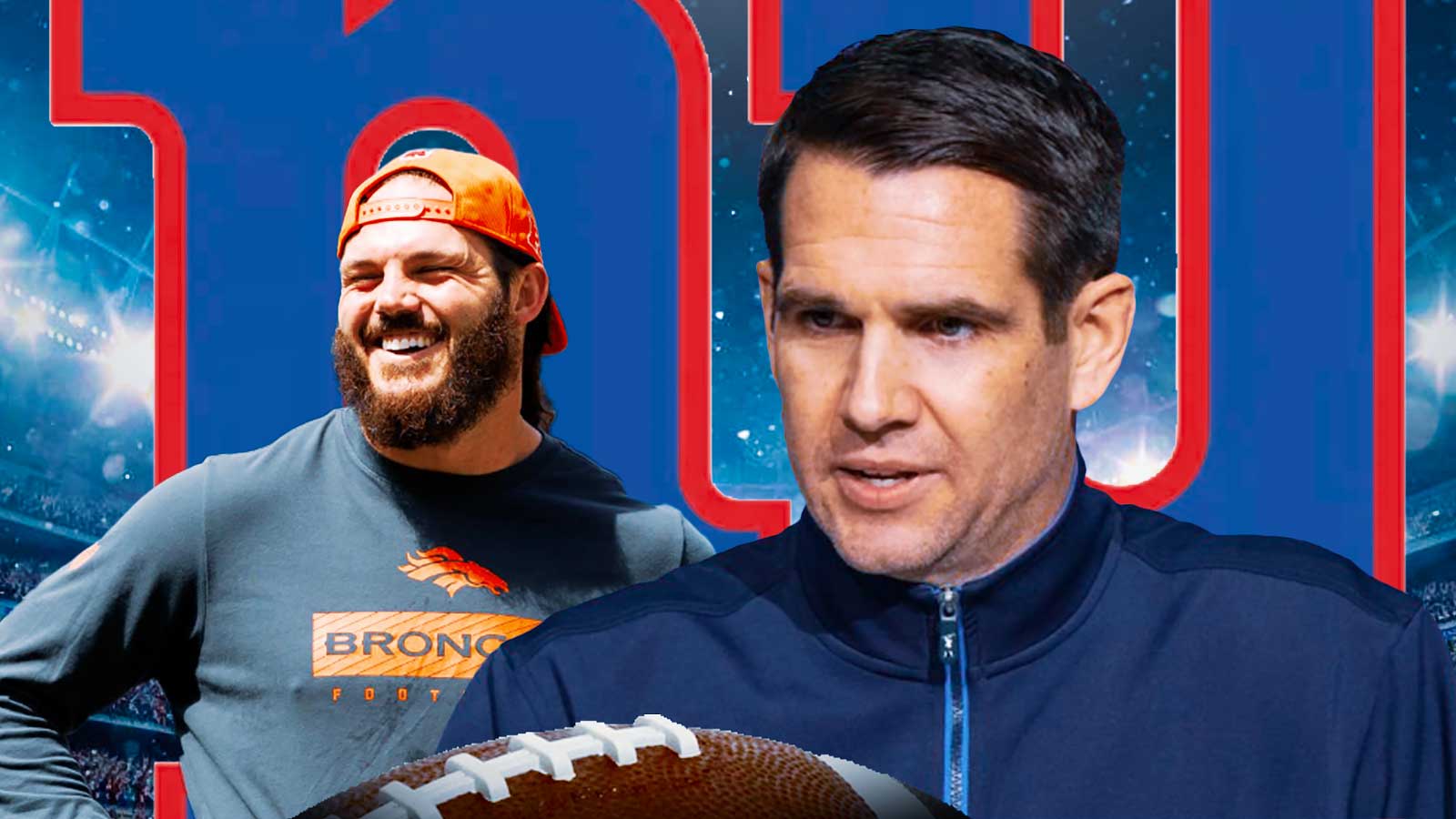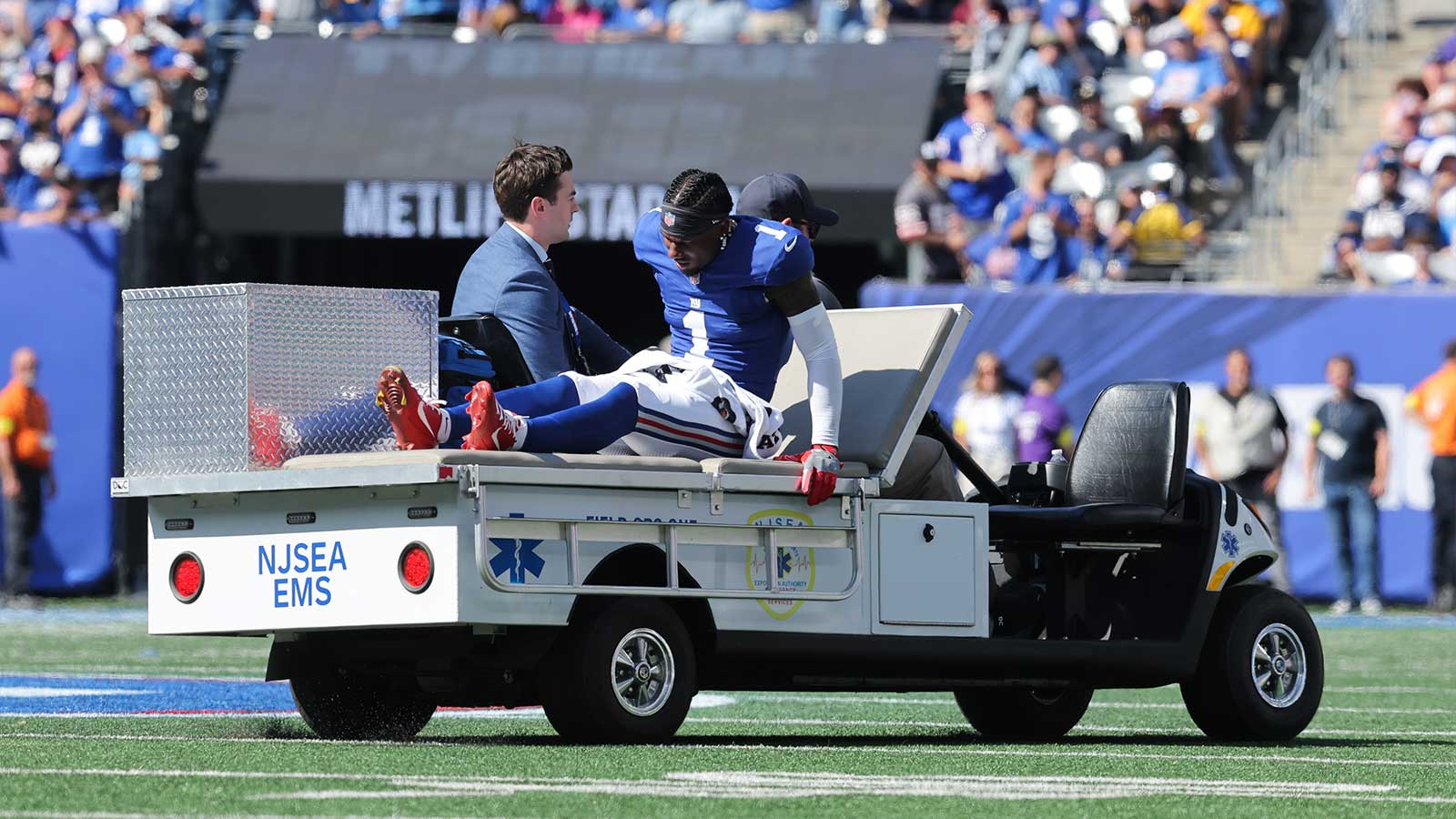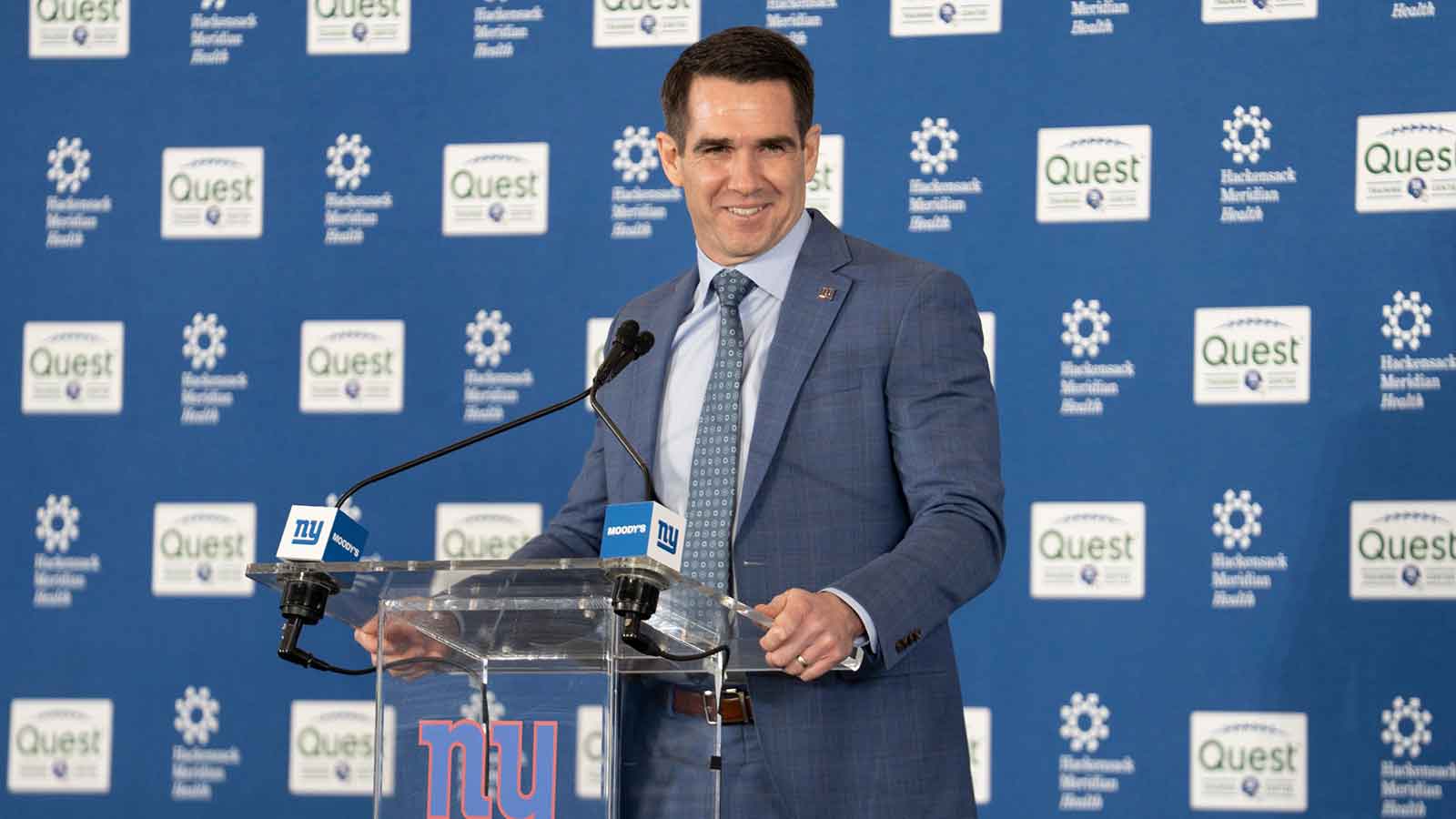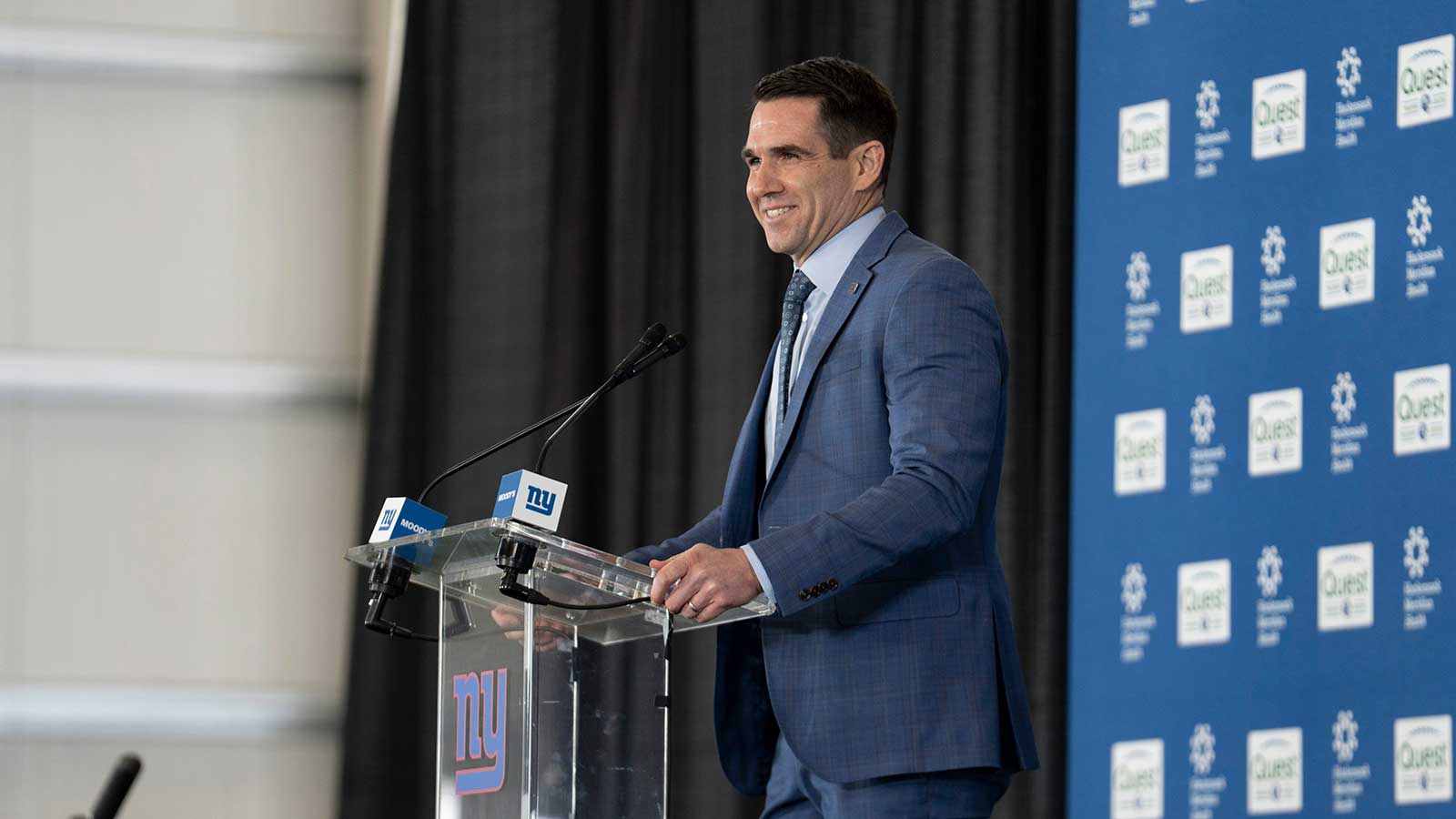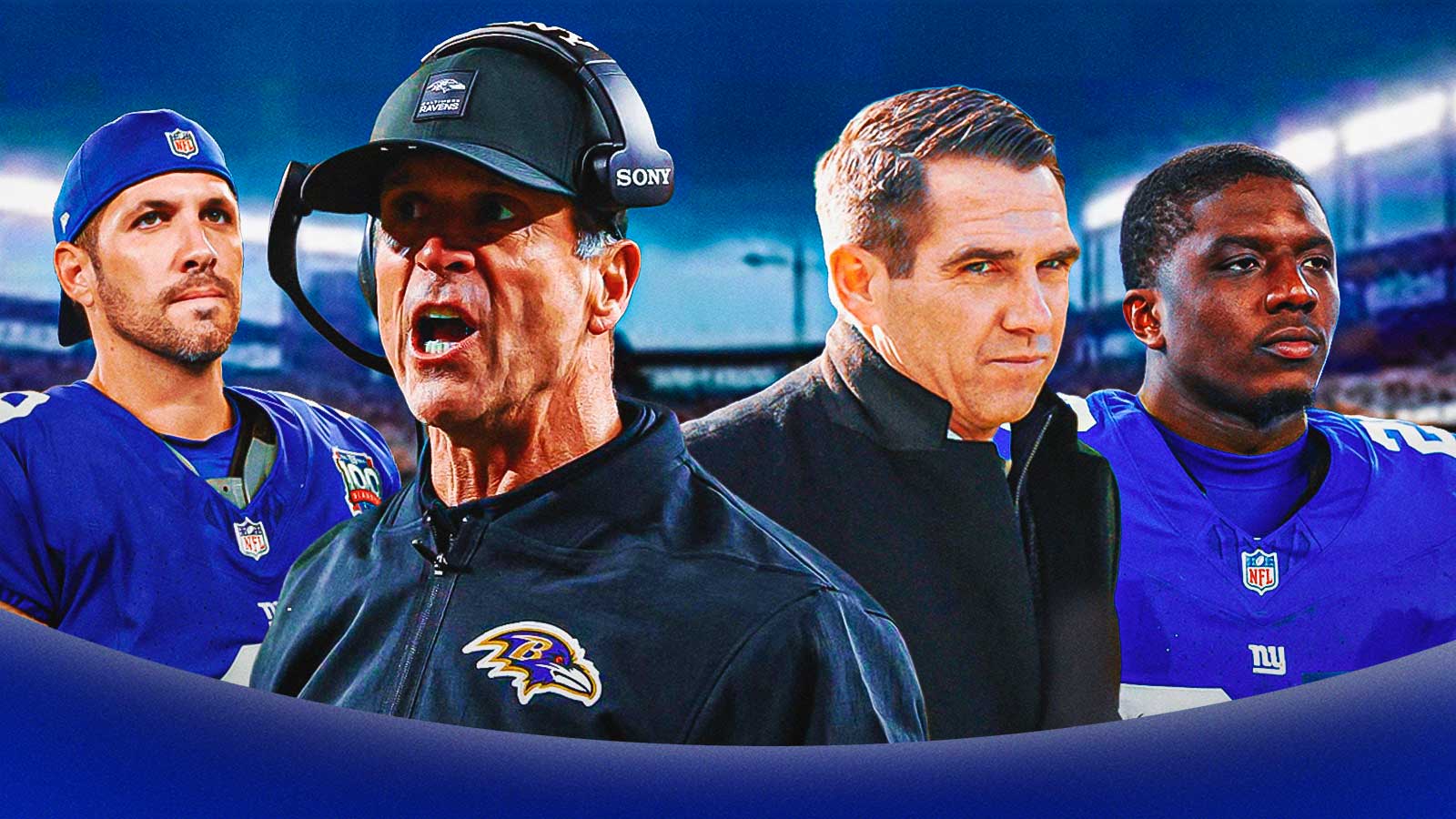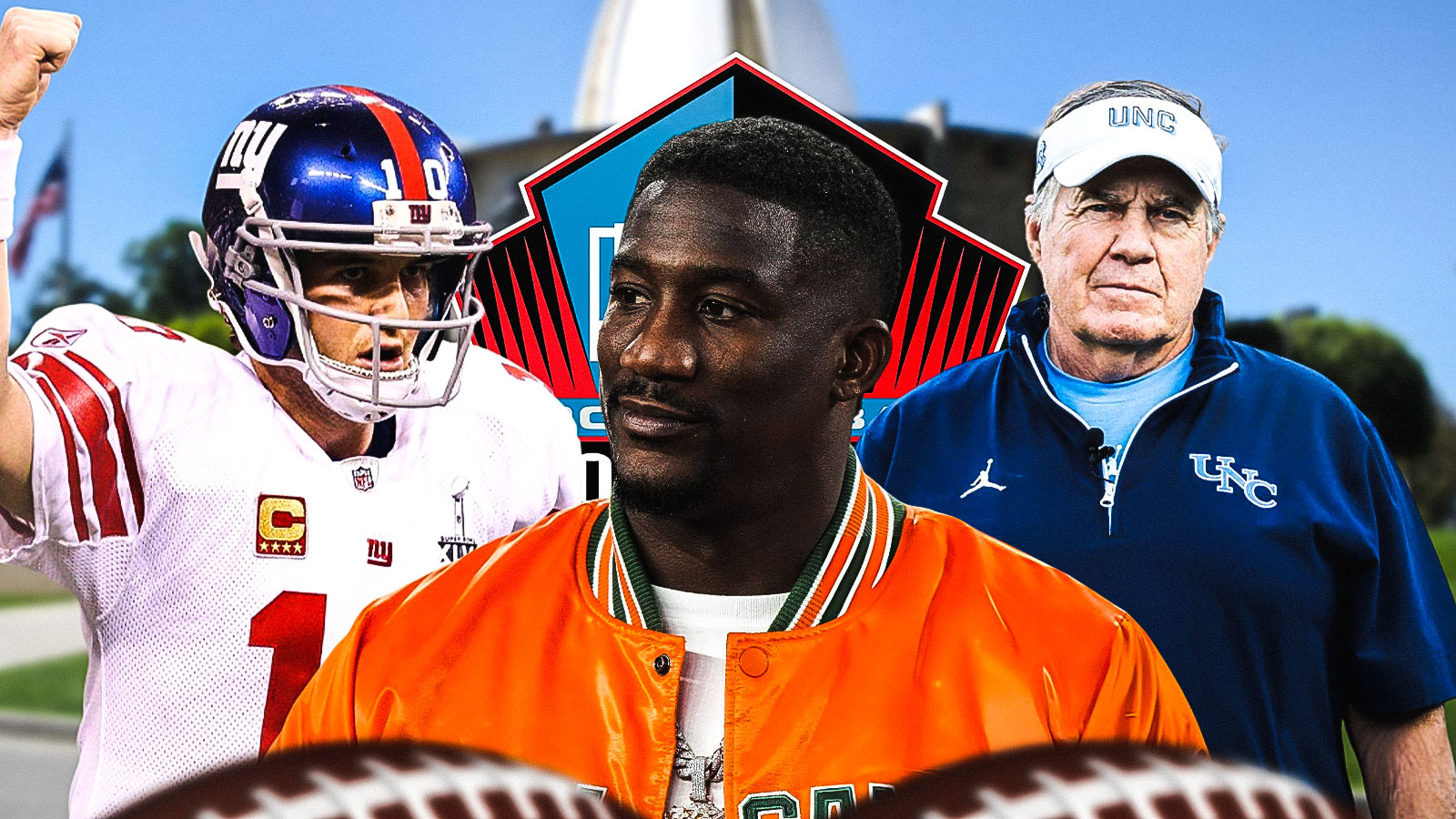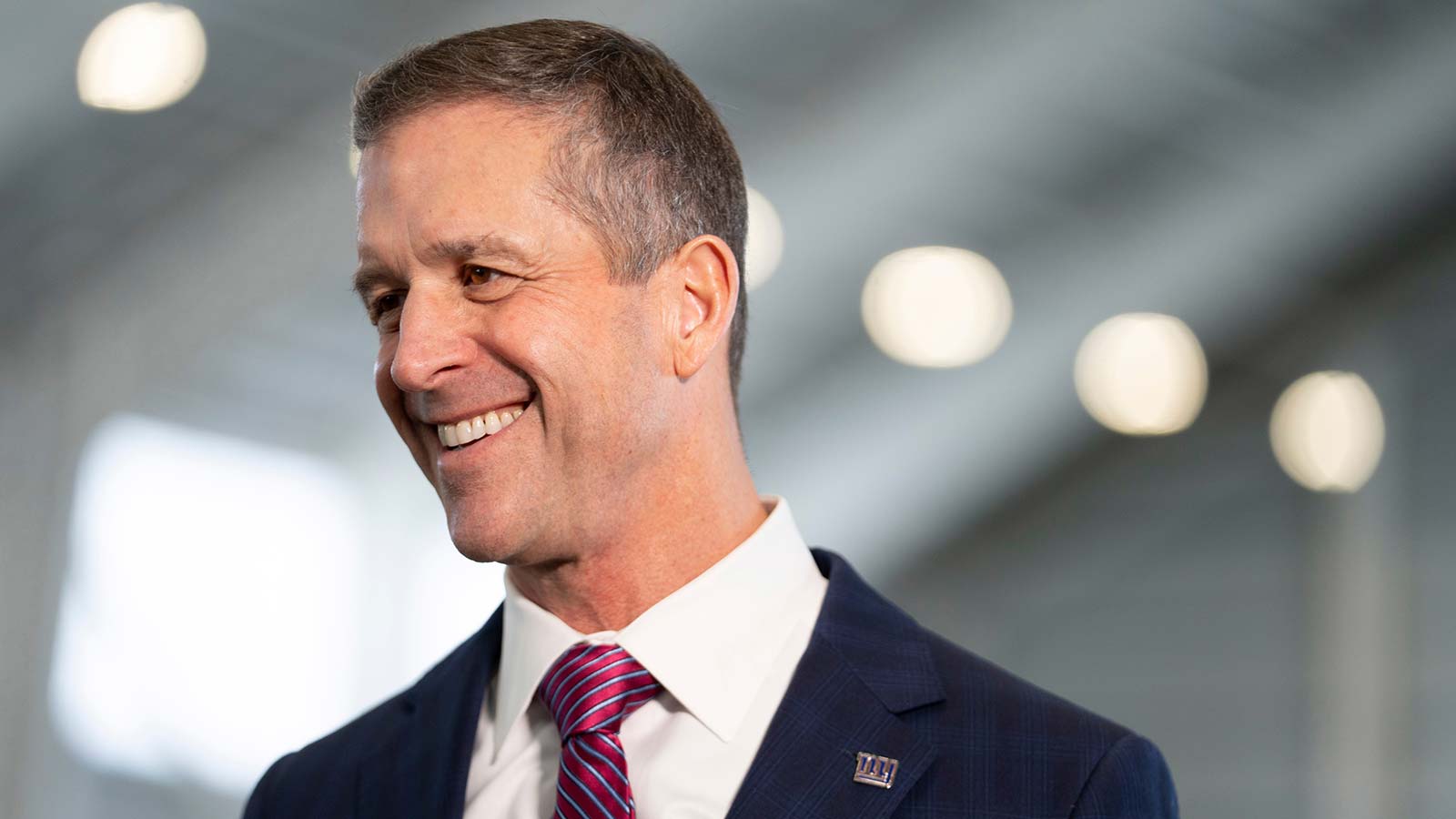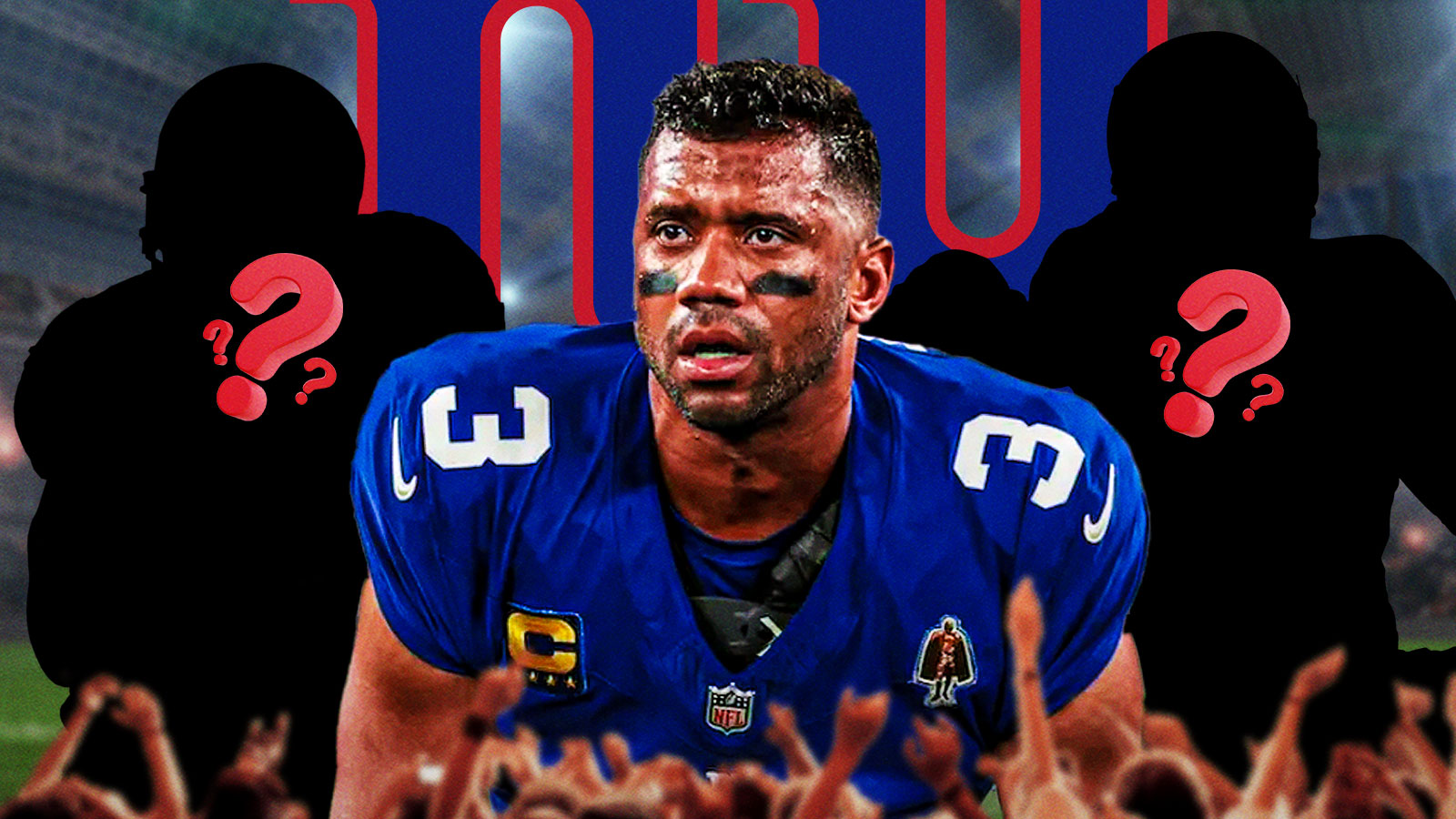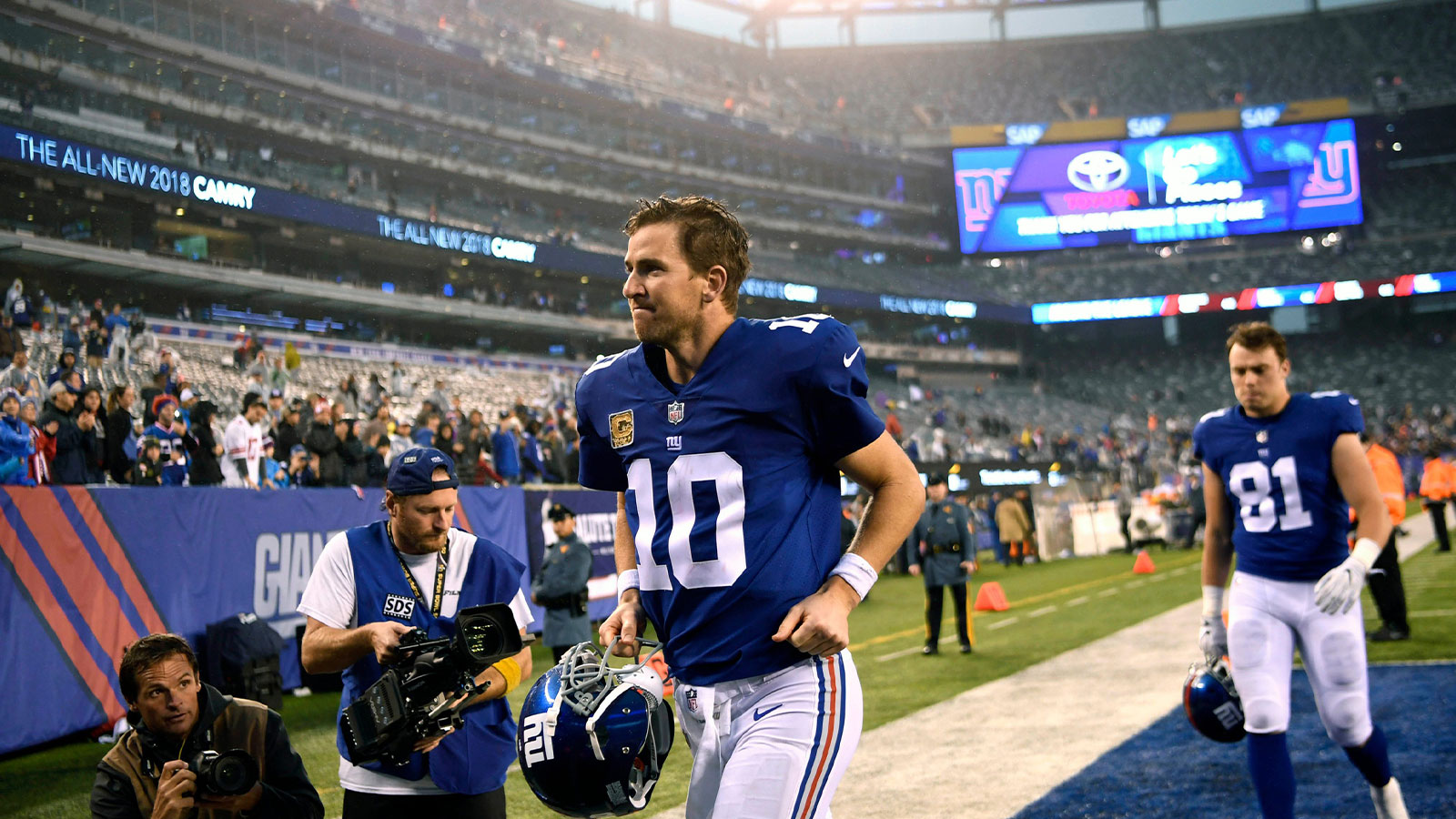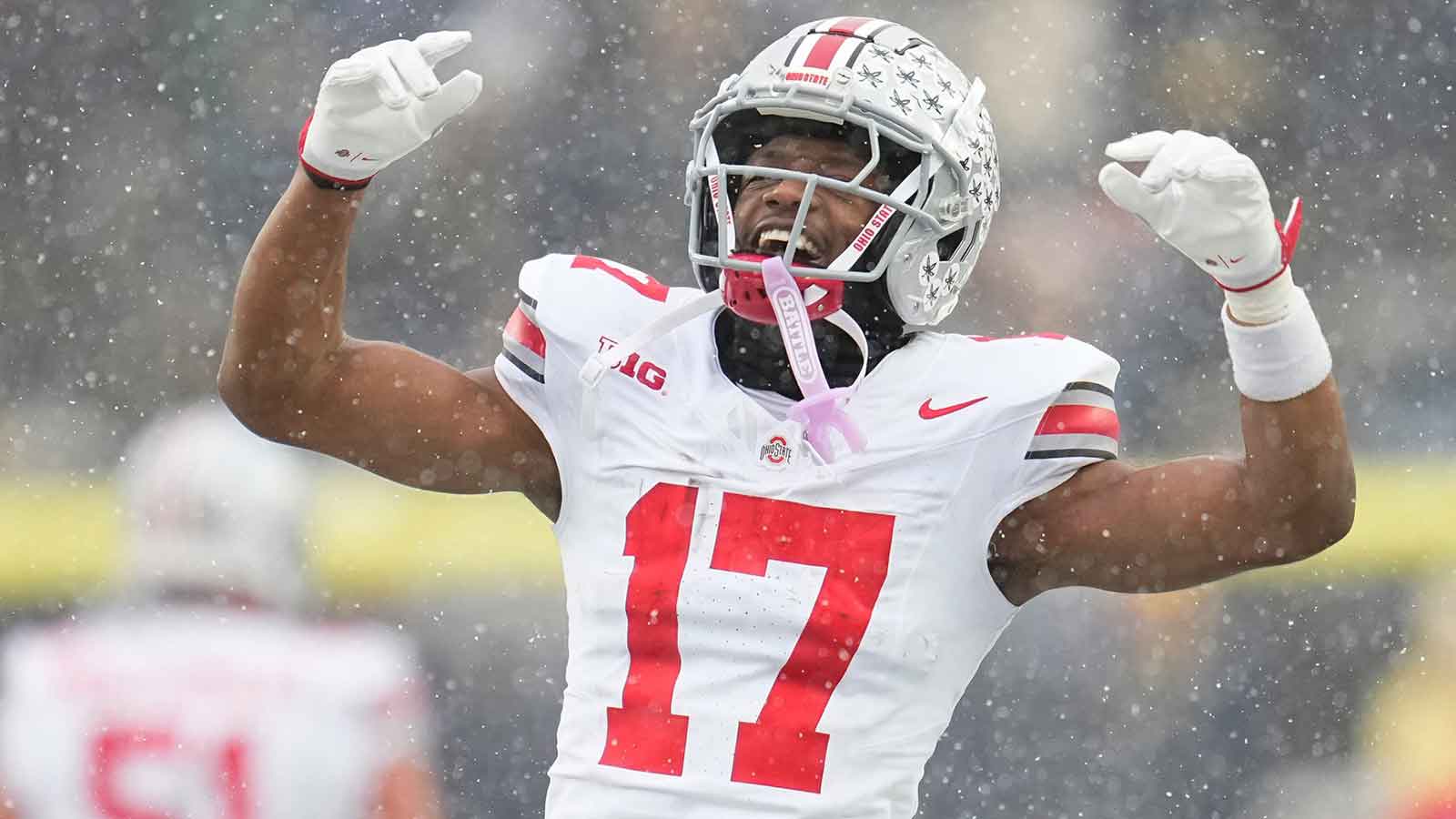Name, image, and likeness. Three words that have been an issue within the NCAA for quite some time. Athletes do not receive compensation for the skills — and millions of dollars — that they bring to their universities and athletic programs. This has turned into one of the most controversial topics in sports. And an app on the brink of re-launching that will try to solve this problem.
Tiki Barber, who is considered the greatest running back in New York Giants' history, is partnering with Tsu in an effort to make options available for college athletes to receive compensation. Tsu is a social network site that splits advertising revenue with its users. For athletes, the ad revenue is created using their massive social media followings.
ClutchPoints recently spoke to Barber about Tsu's re-launch as well as issues surrounding the NCAA regarding image and likeness. Barber also opened up about his days at Virginia and with the Giants while providing more insight on Tsu and its purpose.
Greg Patuto: For those who don’t know, can you explain what Tsu is and how it works?
Tiki Barber: Tsu is a re-launching social network site. It began about eight years ago. It was bought by an entrepreneur named John Acunto and he is re-launching it in a novel way with influencers. Anyone can be an influencer, whether it is a celebrity, an athlete or celebrity chef or even a mom in a local area who has hundreds of followers who trust her. The methodology behind it is that the ad revenue that is part of every social site will be shared with the influencers.
People can find out about it easily by going to Tsu.social and following it on social media sites. It will re-launch sometime in the next month or so. I got involved because I was in the industrial circles and I ran into John and he started to tell me about this new product and it aligned perfectly with what I do for a living.
GP: Name, image, and likeness has been a big problem for the NCAA for quite some time now. Are they aware of Tsu and have you gotten any inkling on whether or not they will be on board with the app?
TB: We have not gotten any inkling from Tsu. I am not executively involved with Tsu. I found out about it and think it is a great way to solve a lot of the problems of influencers. If you become a star in college sports, and of course I’m talking about football and basketball, the big revenue sports, but in some localities, the lacrosse star is a huge local celebrity and they are not able to monetize those things. The NCAA is looking at this and they know it is a problem and they are looking for solutions. I think Tsu is a solution for them but that conversation has not been had yet.
GP: How would an athlete go about signing up for Tsu? Is it connected to their Twitter and Instagram account or is it a standalone app with its own account?
TB: It’s a standalone social site where they create content, whatever it may be. Let’s say they post pictures of them doing some great, in or out of game. There would be a licensing agreement that they would have to make with the universities and they get tons of views. Those views are monetized with ad revenue and the ad revenue would be shared with the athlete. Tsu would take 50 percent and the athlete would take 50 percent. Some of these numbers might be small, but some of the might be huge. It is a way to create an equitable distribution of how money is made via social.
GP: Is this an option for high school students as well? I’m going to use Zion Williamson as an example who went viral at about 15 years old. Is there an age limit?
TB: Well, I think there would be some verification age limit, probably 17, but you’re right. High school athletes and even younger are huge now. Will Grier, who played at Florida and then transferred to West Virginia, his brother who was not an athlete, was this ridiculous social media presence at 14. There would probably be a mechanism to do it but it would probably have to go through an adult.
GP: You see a lot of youth athletes getting scholarships offers, football or basketball, at 13 or 14 years old because they have been in the spotlight at such a young age.
TB: Yeah exactly. I had a conversation today with Peyton [Manning] and we were talking about his brother, Cooper. His son, Arch, is ridiculous and he’s only a freshman. People are consuming his social stuff, even if he is not putting it out. They’re consuming him because they see this greatness in the Manning name and there’s a value to that and it’s not being realized.
GP: California recently signed a bill into law where college athletes can start profiting off endorsements. The NCAA has obviously been against this. Why do you think that it is? What is holding up the NCAA from moving past this?
TB: The simple answer is that NCAA institutions and athletic programs are not-for-profit. Their goal is to break even. Sometimes they are in the red, sometimes they are in the black but their goal is to break even. That’s why you see when schools have these massive fundraising years, they will immediately build a new facility or upgrade the weight room. So the idea for not-for-profit is to run your university or athletic program as good as possible and to build it to these great heights.
If you start having to pay players and athletes in different sports, you create a significant deficit. It messes up your bottom line. There are solutions to that obviously, like Tsu, or other ways to add more money to the pie rather than taking money from the existing pie. I think that is the solution. Legitimizing it and finding a fair and equitable way to do it is holding everything up.
GP: Tiki, you played four years at Virginia and saw a lot of success. Did you or a teammate have any negative experience with the NCAA regarding image or likeness? And was it taken as serious as it is now?
TB: When I was playing in college, about 24 years ago now, we weren’t even thinking about this. Maybe I was locally known in Charlottesville and in the state of Virginia because of some of the big games I had, you heard my name. Social media wasn’t what it is. The Internet was just coming on line. It wasn’t as in our face as it is now for these college athletes. There were some instances that popped up. And I’ll give you the perfect example.
Jeremy Bloom from Colorado, who was one the great mogul skiers in history for the United States, he was declared ineligible because he had to take sponsor money to go compete and he couldn’t play football anymore. I remember when that happened and I was like how is that right? He’s a great athlete and he wants to play college football but because he’s not independently wealthy and can’t sponsor himself to fly to Switzerland or any international competition so he takes sponsor money and now can’t play college football. It didn’t make sense. It never resonated with me.
I think over the years, people started to wrestle with this. Especially after Ed O’Bannon saw his likeness being used in the video games. Everybody knew who it was just like everyone knew who everyone else in the video games were. They weren’t being compensated for it and that’s when it came to a head and the call for it has grown and grown over the years as social media has become so prevalent. Guys and girls who are excellent at what they do are being seen and not being able to monetize it.
GP: We’re beginning to see some five-star recruits opting to go to the G-League rather than play in college. Over the last week, Jalen Green and Isaiah Todd made this decision. They’re forcing the NCAA’s hand, so do you see this being something that will change or is the NCAA comfortable with their product minus some five-star guys?
TB: I think the NCAA will continue to be a great product. It will put more emphasis on coaching and coaches recruiting to find those guys that want to have an undergraduate experience. Certain guys just don’t want to go to college. Think of the Bill Gates’ of the world. He could have probably went to college but he got interested in being an entrepreneur. Some good friends of mine have done this, gone straight to business and they have done exceptionally well. In sports, you can’t do that. You have to be a year removed from high school in basketball and three years in football in order to take a shot at your dream.
There are going to be guys who just don’t want to go to college and will take this shot with the G-League. There will other guys who will say it will be great to be on Duke’s campus or Virginia’s campus and try to win a National Championship. And also get a great education and make an alumni relationship base that could last me for the rest of my life. So you will see some mixes. Some guys will go straight into this and some will opt into the NCAA. And to be honest, I think it is going to clean up the NCAA. We’re not going to have these thoughts about players being paid under the table. That will go away with this, it will kind of push it out.
If people want or need to make money to capitalize on their athletic skill, they will now have options now rather than going to the NCAA and breaking the amateurism rules.
GP: Tiki, shifting gears a bit to the NFL, it seems as though the running back position has been changing over the years. There are less and less three-down backs, there are still some. There are players that act as receivers out of the backfield and some are there to pound the ball. You were both during your playing days. Do you think it is important to do both in today’s game or can running backs find more success focusing on one area?
TB: I think there will be a niche for all levels of backs. There will be a niche for the bigger back who they will have to pound 20 times a game. There will also be a niche for the backs like Dion Lewis who are going to just be a receiver out of the backfield for you. Every now and then, you find these kids like Dalvin Cook, Saquon Barkley and of course Christian McCaffrey, that can do both and are durable. Dalvin Cook not withstanding because of his ACL injury but for the most part they are durable and they're strong. Now they probably have a shelf life, but if they can provide great value for six to eight years and be compensated for it, there is that perfect combo player.
The problem is that it is hard to find them. A lot of kids think they can be that guy but it is hard to do what Christian McCaffrey did. I mean there were six games where he played 100 percent of the snaps. Which is unheard of. He’s a freak. And certain kids like that are going to stand above and get those deals. I think the rest of the guys are going to be intermitted in their own little niches. So the easiest way to answer your question, there’s no shape to a running back. You talk about squares pegs and round pegs, there is not one for the running back position. They’re all over the map and it takes really good coaches to utilize all these guys the right way.
GP: You mentioned shelf life in your answer and it’s short for a running back. It is one of the shortest of any position. In your case, you got stronger in your final three years of your career. Three Pro Bowls, All-Pro, you led the league in scrimmage yards twice. How did you manage to elevate your game to another level over the final three years of your career?
You know, it’s because it took me so long to figure it out. I was hurt early. I started as a rookie and got hurt my rookie season so I was a third down back and a punt returner trying to hang on. This was until about four years in when Sean Payton came in and changed our offense. He put a lot of misdirection and catching the ball out of the backfield. You know, some things that fit my skill set. It didn’t happen until about four or five years in.
So I didn’t start the journey to my peak until I was 25 or 26 years old. Whereas most guys are getting it right away. They get pounded from day one of their NFL career. I didn’t start taking poundings until like my sixth season. So if you look at it in that context, it was like four and a half or five years where I got the crap beat out of me and I was like I’m done. I can’t take this anymore.
A lot of these other guys are taking it from when they’re 21. So by the time they’re 26 or 28, they’ve taken too many carries. I’ve always believed that the position I played, the running back position, is a function of carries and a function of hits. There are outliers obviously like Emmitt Smith and some of these other freaks of nature that play forever. But for the most part, your body just breaks down and you can’t recover like you used to.
GP: Tiki, I’m going to ask about your fondest memories as a player but I have to tell you a memory that is still fresh in my mind. I grew up a die-hard Redskins’ fan and back in 2005, my father and I went to Giants Stadium when the Redskins were in town. I can still see you taking the first play from scrimmage 60 yards down the left sideline right in front of us. That set the tone for the game and it ended 36-0 with the Redskins getting blown out. I can still see the play developing.
TB: That was actually my most important memory, that game. Because if you recall, it was the first game after Wellington Mara passed away. He died on a Wednesday I believe and that next weekend we played the ‘Skins. His granddaughter, Kate Mara, who is an actress obviously, sang the national anthem.
Then the first play of the game happened and I was like this is just one of those days you know, everything worked. I finally scored a touchdown in the third quarter which was my 211th yard which was at the time a team record. So I took myself out of the game after and gave the football to Tim McDonnell who was one of Wellington’s 43 grandkids and I thanked him for being a friend and for his family making me a Giant, and I took myself out of that game because you’re right, it was a blowout.
But that’s one I’ll never forget because I had an opportunity to honor one of the great men of the NFL but certainly of the New York Giants with having that day on the day that we honored him. That was the most meaningful one.
GP: Transitioning into today’s game, it is a strange and hard time for all of us. Sports have been on hold for a long time. Can you see any scenario where football is delayed or do you think it will be right on time for that?
TB: I hope that it is on time. Because if football is delayed unlike the other sports, where you can kind of smash them in. Like baseball, you can truncate the season and it is not necessarily going to affect who is going to get to the playoffs and you can play double-headers. Basketball is done anyway. They are in the latter half of the season.
If football gets delayed and they have to shorten the season or push it back, it really compromises the next season. I hope it gets done but I ultimately think that we will not get games with the fans until 2021. From a fan’s perspective, you have to think about what you would do. I think without a vaccination, it will be uncomfortable. I think the games are going to get played and I hope it is not delayed.
GP: ‘No fans' has been discussed all over sports and it seems like that is set in stone. Do you feel there are other precautions for players to take? Testing has been brought up along with isolating in hotels during the season.
TB: I think that’s going to happen for all sports. The isolation side of it but the testing has to improve. As soon as you see a case, you have to isolate the individual because the last thing you want is for these explosions of infections to happen within teams. The hard thing about isolations, and we saw this with some suggestions with baseball, is putting the guys away for four months without their families. There is no way anyone is doing that.
Those solutions won’t work. The only way we will get back to normalcy within sports is when the testing improves and the treatments become better, which right now seems like it is up in the air and in limbo.



